Although I started this year's cuttings much later than I should have, I still have hope that I'll get at least a couple of plants out of the attempt. As you can see above, one of the cuttings has leafed out and is doing quite well. It may actually need a larger pot already. The rest of the cuttings? Let's take a look.
This one looks like it's just starting to awaken, with the little leaf tips only now showing signs of elongating:
This one, well, it's not doing anything:
Taking a closer look at the base of the cutting, you can see why:
It's sort of shriveled up! There are a few of the other cuttings that have shriveled like this too:
Pulling one of these out of the soil, I can see that it indeed is rotting:
The rot extends almost completely to the top of this one cutting:
But this one still has quite a bit of healthy plant tissue:
So I decided to cut the rotten parts off and see if I can still salvage some of these cuttings. Two plants from six cuttings is not a very good success rate in my opinion, and since there are three different varieties here I want at least one of each to survive.
I cut into the rotting area first, just to see what it looks like:
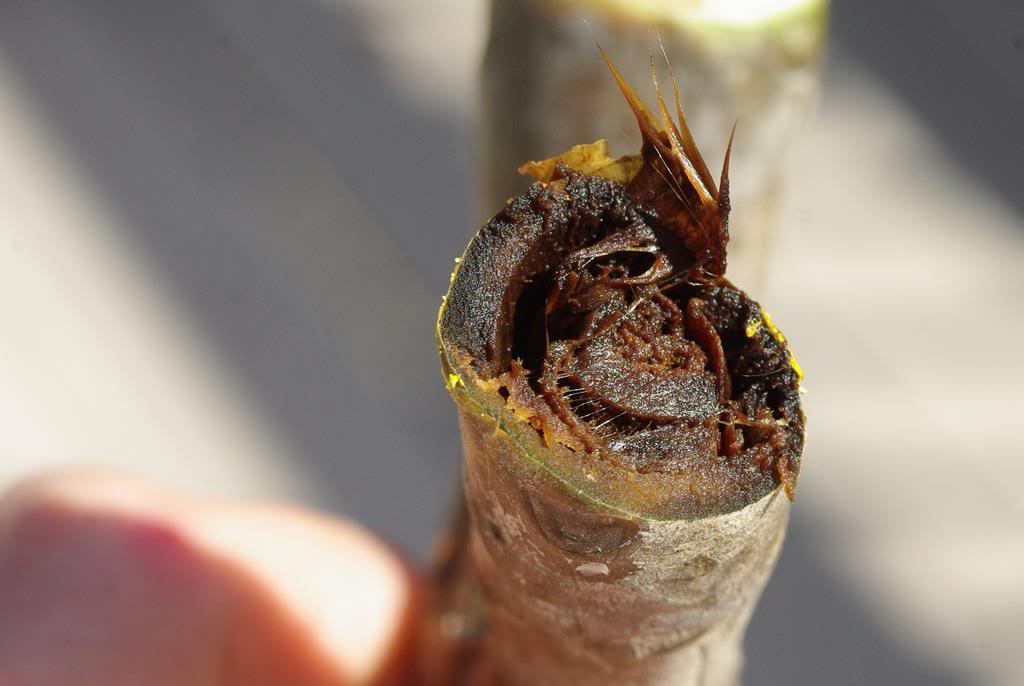 |
| Very rotten. |
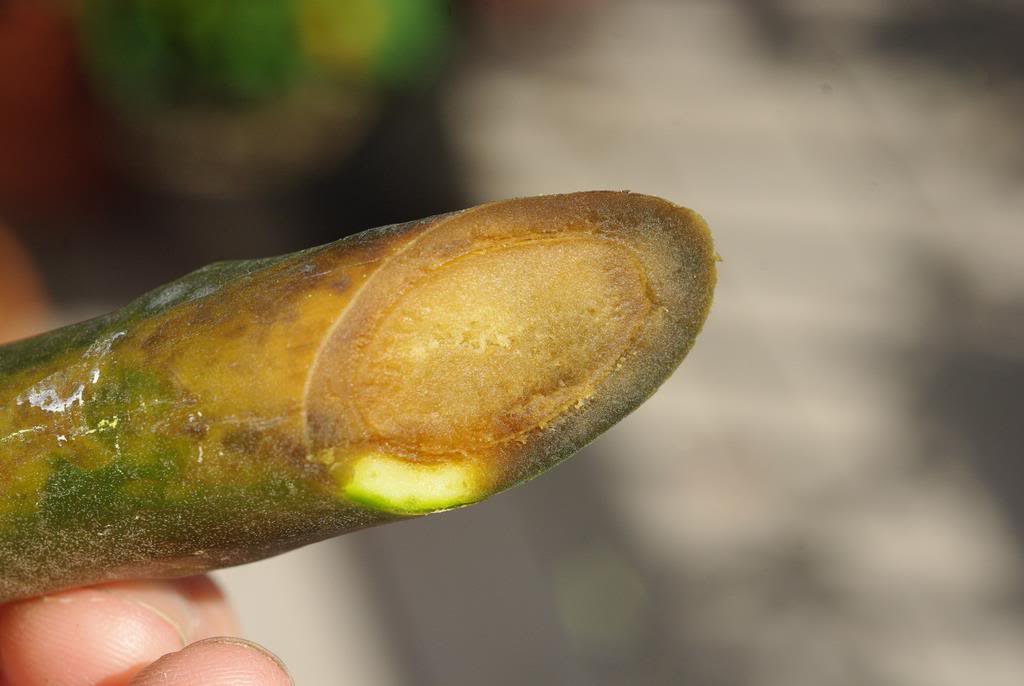 |
| Almost to the healthy tissue... |
Then I cut in the appropriate place, where the good tissue begins:
It's amazing how much sap leaked out of these cuttings!
I then dipped the cut ends into rooting hormone powder:
Some of the salvaged cuttings are very short:
Probably too short to root, but I'm not prepared to give up on these yet. Even the "long" ones are shorter than is recommended for cuttings (obviously, since I cut portions off all of them), but I'll see what happens.
I read that I should let the cut ends dry out for three to seven days before potting them, but that rot may still occur. I also read that putting them into dry sand to dry out is even better and gives less chance of rotting:
So I'll go with the dry sand method.
I'll have to read again if it's ok to root these in the sand, or if they need to be put into a different medium. I want to make sure I get as many of these growing as possible so I can overwinter them in different ways: some in the garage, some under lights.
I've read that growing plumeria from cuttings is quite easy. I'm finding that it has more challenges than expected.
Hopefully my efforts will pay off in a couple of years with some of those wonderful, fragrant blooms. That's what this is all about for me. Well, that and the experience of growing something new.
.

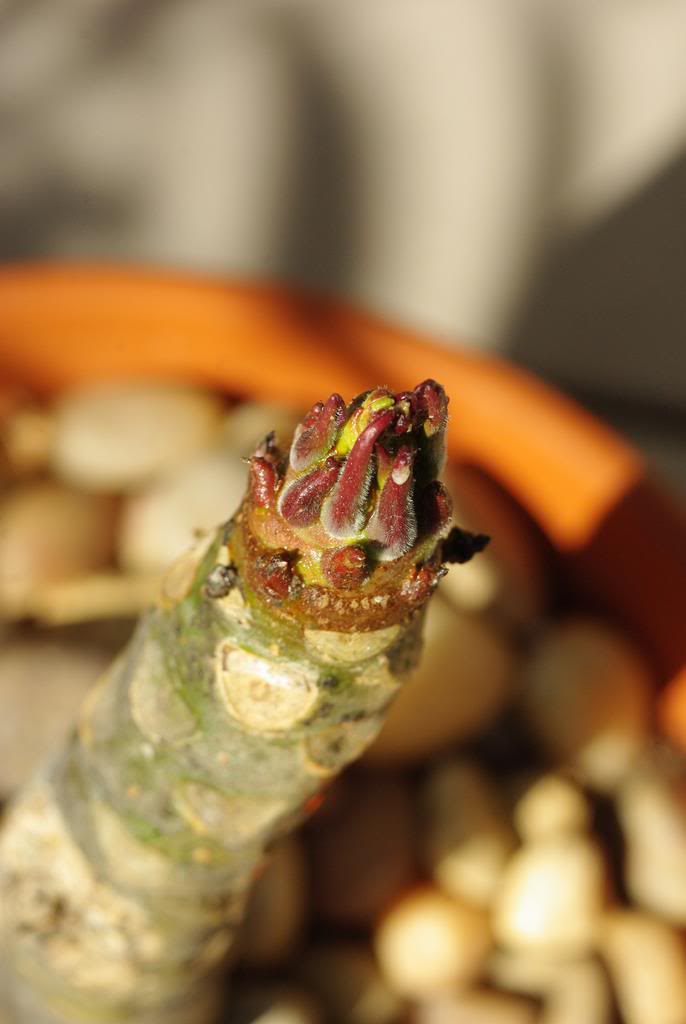
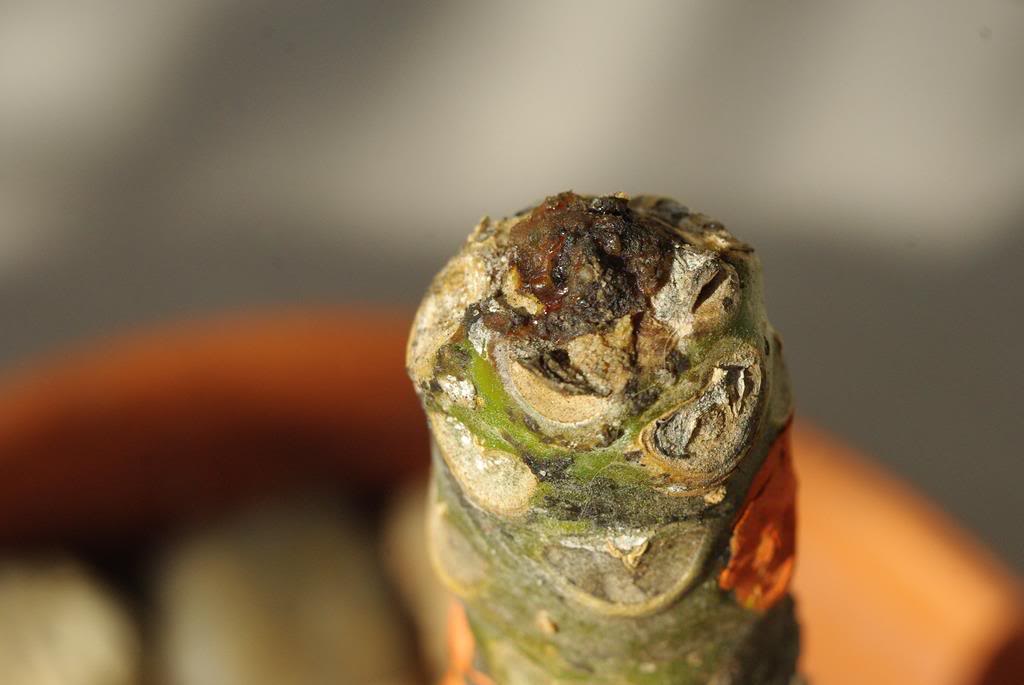
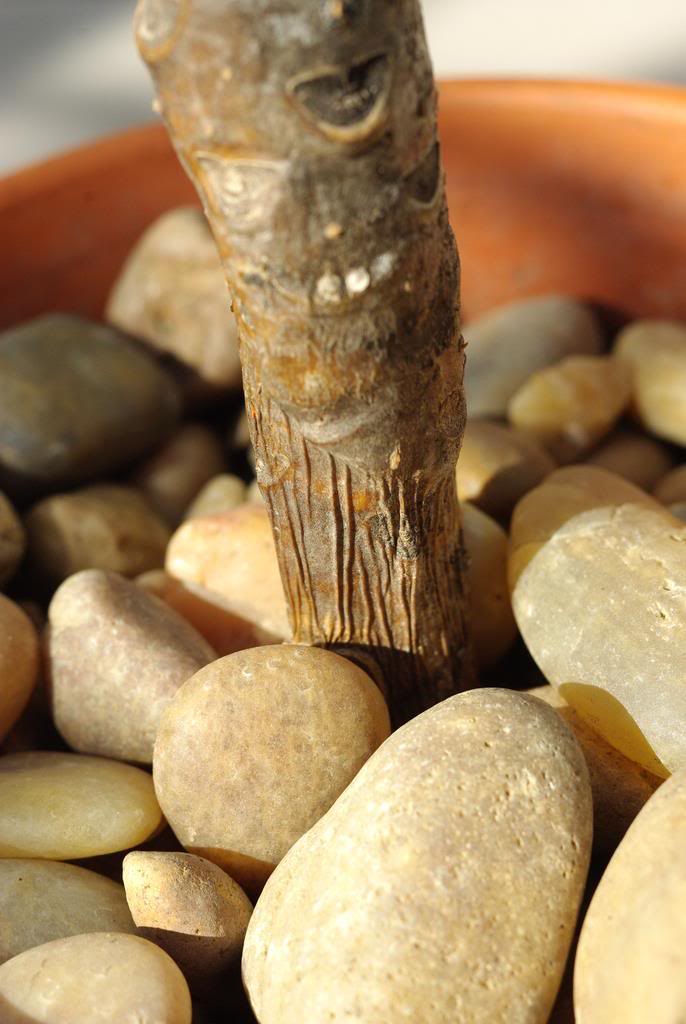
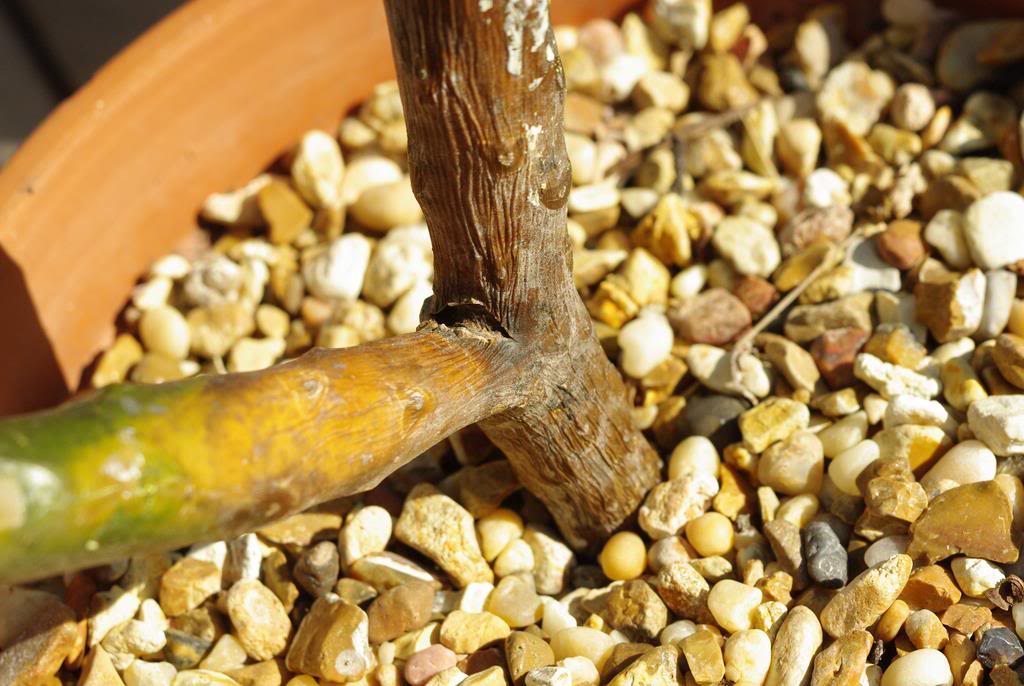

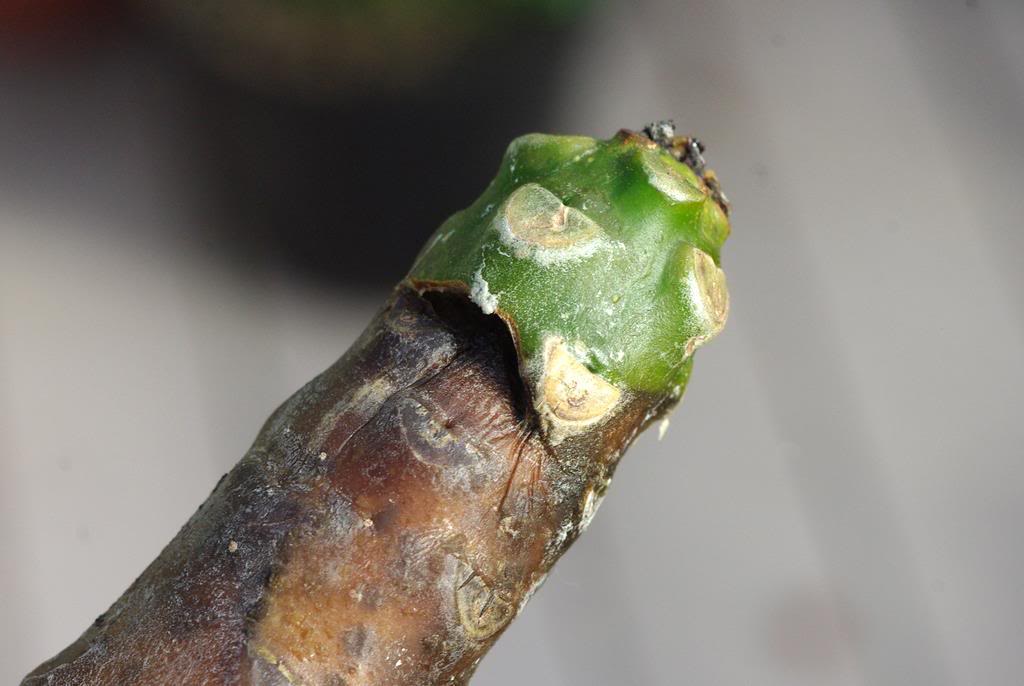

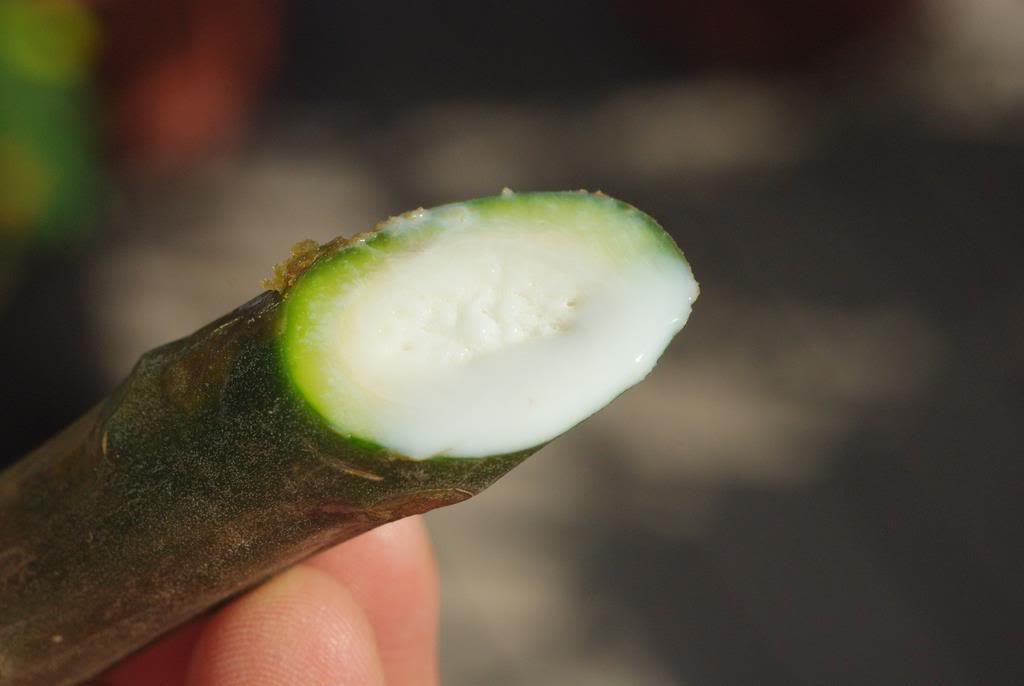
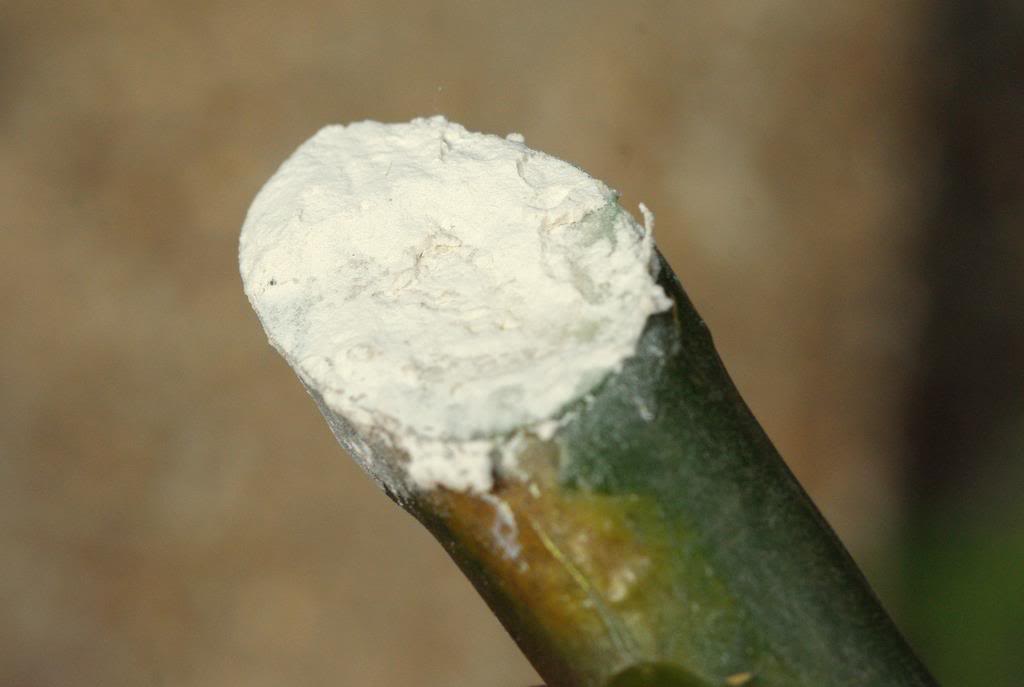
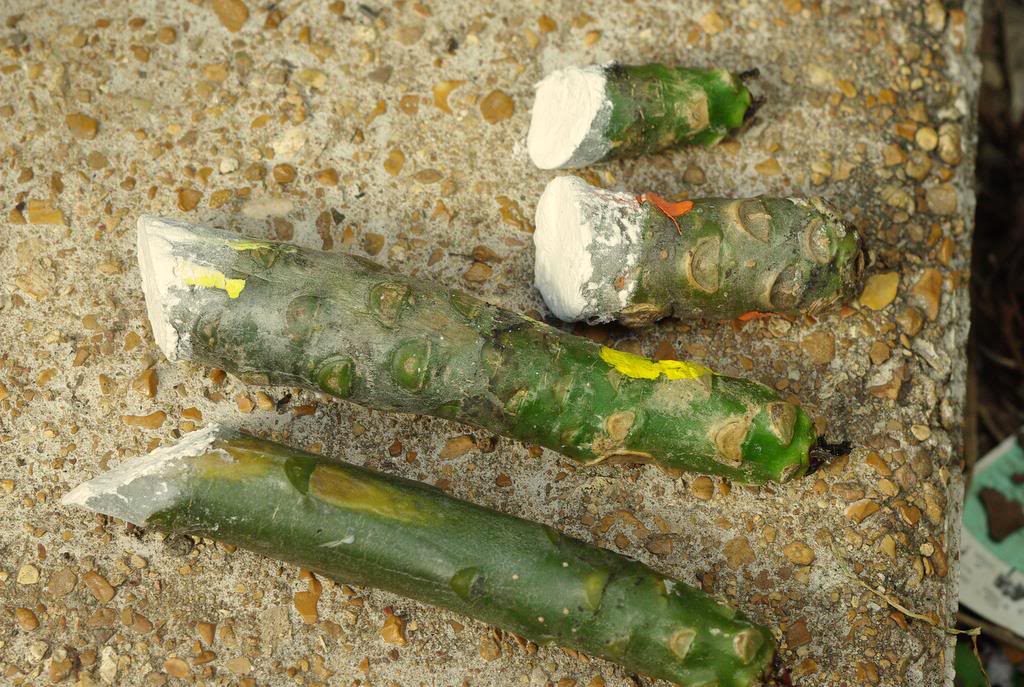
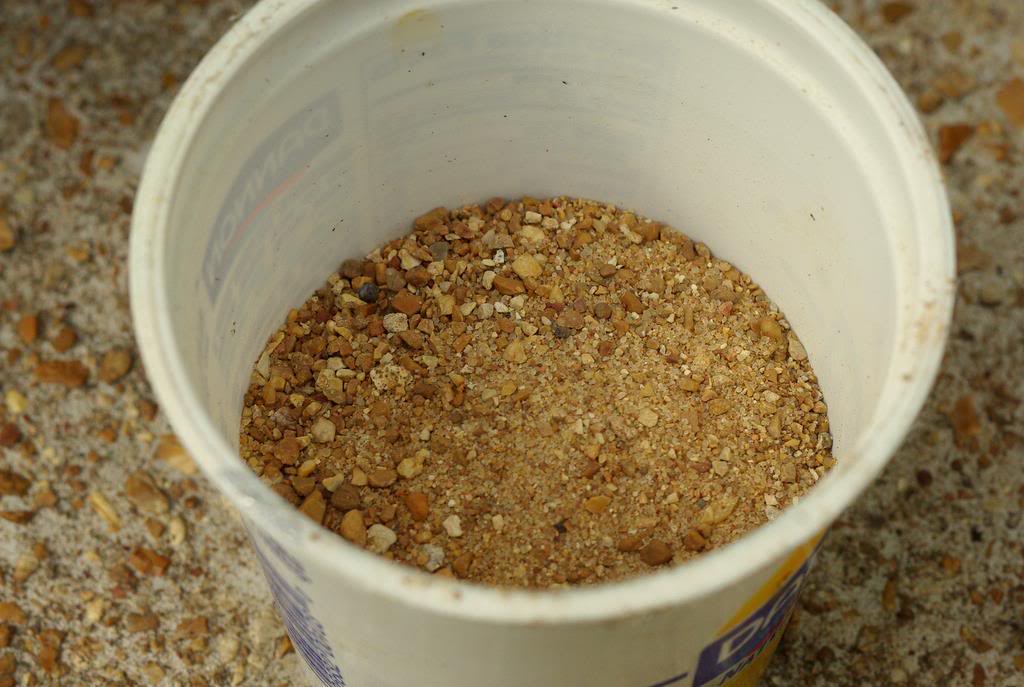
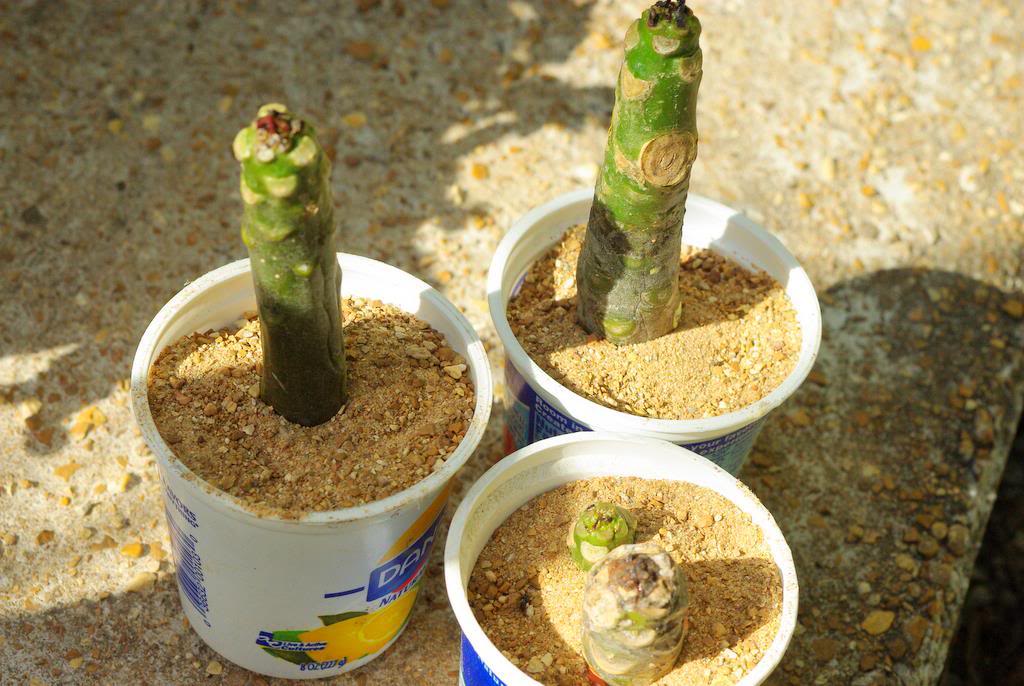
Gardeners will do anything to get things going. Good luck with these cutting as well. Seems you've been very busy in the garden. Fixing drainage holes, repotting and now this.
ReplyDeleteI've been taught that rooting hormone powder is the culprit when used too heavily. It should be the sheerest veil of powder only at the edges not across the cut, best applied by wiping it on from a dipped finger, not actually dipping the plant material. This, even when planning to press the sticks through dirt, which will wipe off more hormone. Think 'parsimonious' when applying.
ReplyDeleteOh, and roots develop best out of narrow sliced away parings from the sides of cuttings, when using rooting hormone. Slice off a strip of bark/skin starting an inch or so above the cut end, like peeling a cucumber, slicing down toward the cut end. The edges of bark on either side of this slice is where you wipe on a bit of rooting hormone. Powder across the bottoms of cuttings is what causes rot, often enough. Learned from a longtime old fashioned nurseryman. Passing on what he taught....
ReplyDeleteHi Alan - I too would go to a lot of effort for Plumeria. Good luck with these. I hope you'll do a follow up post and let us know how it pans out.
ReplyDeleteGrowingHabit: thanks for the tips. Were they specifically for plumeria, or cuttings in general when using rooting powder?
ReplyDeleteHi Alan: the tips are general and all-purpose, not for plumeria cultivation in particular.
ReplyDeleteI don't know where you live (what climate you live in) but if possible try leaving a few outside. My dad taught me not to leave mine in the garage as they will be more prone to root rot as there is no air circulation for them. The vital rule my dad taught me is that if you want a plant to grow for need to simulate the same environment they would have been living in in nature. For example plants that grow in the Amazon on the floor of the rainforest are not going to survive anywhere that doesn't have the same lack of sunlight and high water and humidity. Following this rule my dad has successfully grown many plants others can't.
ReplyDelete